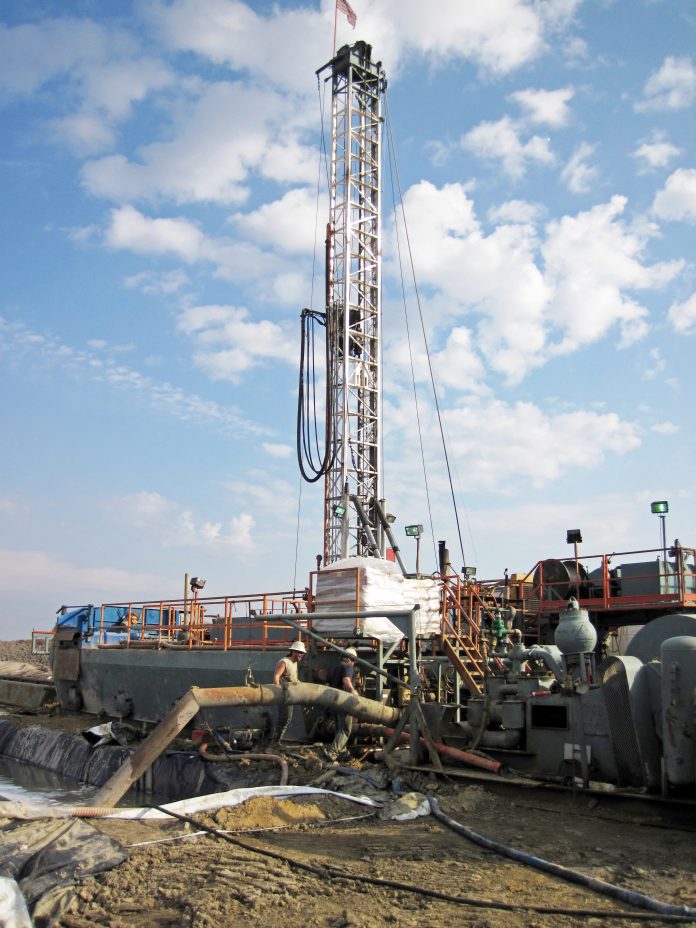Chris Baugh, Lancashire Socialist Party
Chris is the former assistant general secretary of the PCS civil servants’ union (2004-2019), he held responsibility for developing the union’s policies for combating climate change.
One of new prime minister Liz Truss’ first announcements was to end the moratorium on fracking, in force since 2019. The ban was introduced after fracking-induced earthquakes, protests, and direct action at Preston New Road and many other fracking sites.
Polls consistently show less than one in five support fracking, even fewer in areas near fracking sites. A politically unpopular move, the weeks-old cabinet is reportedly already split on the plans.
Fracking is a shale gas extraction technique that pumps large volumes of water, sand and chemicals at high pressure into a gas well, to frack or crack the shale rock. It adds to greenhouse gas emissions, including risking toxic methane gas emissions. Secrecy about the precise chemicals used leaves workers and nearby communities at risk of exposure to a range of toxic and carcinogenic substances.
In ending the moratorium, Truss is ignoring a leaked report by the British Geological Survey which had been delayed because of the Queen’s death. It admits that fracking-induced earthquakes and their magnitude remain “a scientific challenge”.
Current regulations mean drilling must stop if earthquakes exceed a magnitude of 0.5; the fracking companies are reportedly lobbying for a substantial rise in this figure.
The 2019 earthquakes on the Fylde in Lancashire registered at 2.9, and 3.5 at Coniston in Cumbria. While there is no immediate risk of Blackpool Tower or the Old Man of Coniston collapsing any time soon, there is the genuine risk of damage from further earthquakes caused by fracking.
Earthquakes
The earthquake in 2019 was felt across the region. Fracking at Cuadrilla’s Preston New Road site was suspended within hours. Since the earthquake there have been no published official reports of damage to property, but a total of 197 complaints were made about damage to property, with a third from the small seaside town of Lytham St Annes.
Proceeding with fracking under these circumstances demonstrates the loyalty of Truss, a former industrial economist at Shell, to the fossil fuel companies, and the Tories’ contempt for public safety. Oh well, what’s a few earthquakes in ‘the desolate north’?
Truss made the fracking announcement as part of a package to freeze energy prices at an unaffordable level which doubles last year’s bills. It is the usual Tory greenwash to claim that fracking will help people with energy bills.
Tories also claim that fracking will provide much needed jobs in areas of low employment. According to government reports, it would produce potentially 400 jobs in Blackpool and on the Fylde Coast.
Instead, public investment in offshore windfarms in the Irish Sea could generate huge quantities of energy and provide up to ten thousand new, skilled, unionised jobs.
In Lancashire, local trade unions, climate activists and NHS campaigners are discussing protests in the coming weeks: against the cost-of-living crisis; in solidarity with strikers; defending the NHS; and opposing fracking, putting forward a climate jobs alternative.
Any attempt to restart drilling on Preston New Road, or at any other sites, is likely to meet with public resistance.
There is an alternative to the madness of the capitalist market responsible for the massive poverty around areas like Blackpool, and plans to frack the countryside in Little Plumpton with its damaging environmental consequences.
The trade union struggles taking place, the impact of rising living costs and the urgent issue of cutting global greenhouse emissions, all point towards a socialist answer: bringing energy resources into public ownership, with democratic workers’ and community control, as part of the socialist transition needed to reverse the slide to climate disaster.







